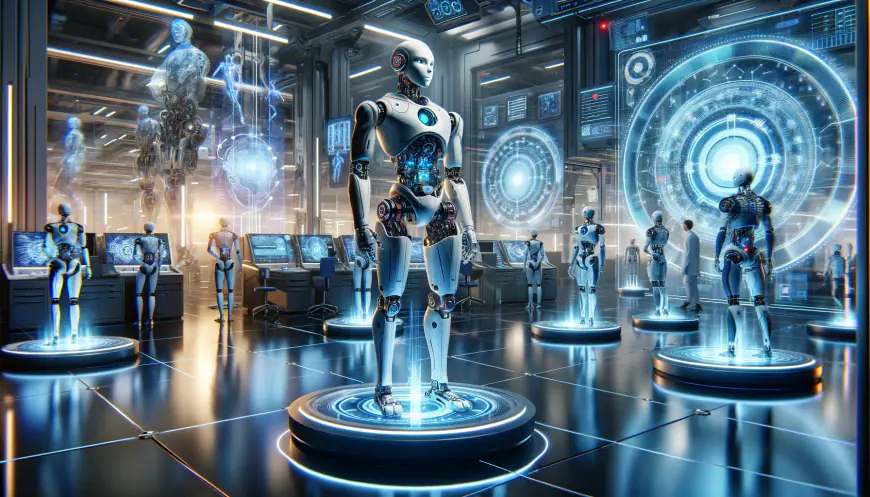Revolutionizing the Workforce: OpenAI-Backed Humanoids Show Remarkable Progress
In a significant advancement for the robotics industry, 1X, a Norwegian humanoid robot manufacturer, has made headlines with its latest development in autonomous robotic workers. With a substantial investment from OpenAI, amounting to a $25 million Series A funding round followed by a $100 million Series B, 1X’s humanoid robots, particularly the Eve model, have […]

In a significant advancement for the robotics industry, 1X, a Norwegian humanoid robot manufacturer, has made headlines with its latest development in autonomous robotic workers. With a substantial investment from OpenAI, amounting to a $25 million Series A funding round followed by a $100 million Series B, 1X’s humanoid robots, particularly the Eve model, have demonstrated unparalleled progress in autonomous operations, marking a pivotal moment in the journey toward general-purpose humanoid robot workers.
Autonomous breakthroughs
The Eve humanoid, despite its seemingly simple design featuring powered wheels and basic claw hands, has showcased impressive capabilities in performing a variety of tasks autonomously. This development is a testament to the potential of neural network-based control systems in enabling robots to execute tasks with a high degree of autonomy, without the need for teleoperation or pre-scripted trajectories. The demonstration of Eve robots efficiently handling objects, opening doors, and autonomously recharging showcases a significant leap forward in the application of robotics in everyday tasks.
1X’s approach to training these robots involves a combination of imitation learning, where robots learn tasks through the observation of video and teleoperation, and subsequent fine-tuning for specific environments. This method has proven effective, allowing for quick adaptation to new tasks with minimal data collection and training time. The success of this approach points to a future where robots can be rapidly deployed and easily integrated into various work environments, from warehouses to general utility tasks.
The road ahead
Despite the relatively modest appearance of the Eve humanoid when compared to the developments by other companies in the field such as Tesla and Agility, the focus of 1X on mastering autonomous task execution rather than physical attributes signifies a strategic shift in the robotics industry. The ability of these robots to learn and perform tasks autonomously without direct human intervention is where the true innovation lies, challenging the traditional boundaries of robot applications.
1X is now poised to scale up its operations, seeking to expand its team of AI researchers in the SF Bay Area. This expansion aims to enhance the capabilities of the Eve humanoids further, increasing the number of robots and teleoperators to meet the growing demand for autonomous robotic solutions. The company’s commitment to solving general-purpose mobile manipulation tasks through end-to-end data-driven methods underscores the potential for significant advancements in the field of robotics.
Implications for the future
The progress of 1X’s humanoid robots, backed by OpenAI’s significant investment, not only showcases the potential of neural networks in revolutionizing the robotics industry but also highlights the growing interest in autonomous robotic workers. As these technologies continue to evolve, the prospect of deploying general-purpose humanoid robots in a variety of settings becomes increasingly feasible. The implications for industries such as logistics, manufacturing, and even domestic assistance are profound, offering the potential to significantly enhance efficiency and reduce the reliance on human labor for repetitive or mundane tasks.
The advancements made by 1X and the support from OpenAI signal a new era in robotics, where the focus shifts from the physical capabilities of robots to their ability to learn and adapt autonomously. This shift opens up new possibilities for the application of robotics, promising a future where robots could become an integral part of our daily lives, performing a wide range of tasks with a level of autonomy previously thought to be years away.
As the industry continues to evolve, the work of companies like 1X will undoubtedly play a critical role in shaping the future of robotics, demonstrating the power of AI and machine learning in creating autonomous systems capable of transforming the workforce.
What's Your Reaction?









































































































